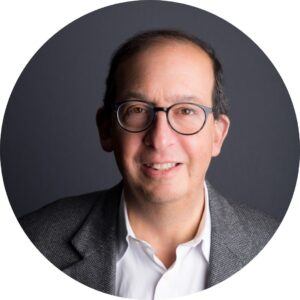This fall, the Center for Health Communication at Harvard Chan School is launching a new 2.5-credit course called SBS 225 | Engaging with the press: A practical look at health communication. It will be taught by veteran news executive Richard J. Tofel, the former president of ProPublica and a distinguished visiting fellow at Harvard Chan. We caught up with Tofel to find out more.
 Tell us a little bit about your career in journalism.
Tell us a little bit about your career in journalism.
I began my career as a newsroom lawyer, first in law firms, then as the first in-house newsroom attorney at the Wall Street Journal. I later served as chief of staff in the newsroom, oversaw corporate communications for the company that owns the Journal, and was ultimately its assistant publisher, in charge of its international editions. I was the first employee at ProPublica and ran its business side from 2007 until 2021. I continue to advise news organizations as a consultant and sit on several related boards.
Your course explores the relationship between public health and the press. Why is it important that we probe that relationship right now?
We learned—or at least should have learned—a lot from the pandemic. One big thing, I hope, is that the challenges of communicating with the public about public health are immense and urgent. A big part of that remains communicating with and through the press. Leaders in public health increasingly recognize that they need to step up their game in this area, and that requires a better understanding of how the press works, and how they can most effectively work with it.
Who should consider taking your course?
The course is intended for anyone who works or plans to work in public health and expects to engage with the press, or to advise those who do. The approach is very practical, including four sessions devoted to hands-on media training, as well as the chance to interact with leaders in journalism and public information, including senior Harvard Chan School faculty with experience in this realm. Most of those taking the course are expected to be graduate students at the Harvard Chan School, but we hope and expect doctoral students, public policy students, and a few undergraduates may also find the course worthwhile.
I took the noncredit course you offered last fall. What’s different about this year’s 2.5-credit version?
Three of the four media trainings (talking with text reporters, writing for the public, and online security) will be new, as will be two intensive case studies and a class on the perspective of public information officers. That said, about half the course will be at least somewhat similar to material covered last year.
How could taking this class help me advance my career and my ability to advance positive change in public health?
A strong grasp of how to effectively engage with the press will likely be in increasing demand in post-pandemic public health, at any level of government as well as in many civic sector and private entities. Meanwhile, a wide range of public health goals require effective communication, much of it with and through the press. This course is designed to provide a basis for that sort of knowledge, as well as practical skills in putting the knowledge to use.
Sounds great. What sort of time commitment can I expect?
The course will meet 15 times for ninety minutes each session, on Tuesday and Thursday afternoons during Fall2 (late October through mid-December). Four of the sessions will be devoted to hands-on media training. All will feature guests from journalism, communications and the world of public health, and participation in those discussions (including opportunities to do so asynchronously) is important. Reading is significant for a few of the sessions, but more limited for most. There are two required short papers (1000 words max each), one at midterm, one at the conclusion of the course.
Be the first to know about new communication courses and workshops from the Center for Health Communication. Subscribe to our monthly newsletter now.



